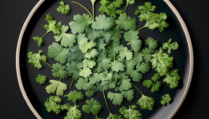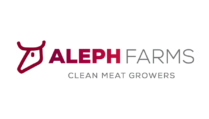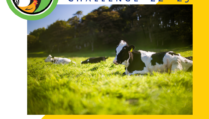By Michelle Roberts, from the BBC [8th December 2015]
Superbugs may be passed on to people by eating undercooked meat, a government report has warned.
Antibiotic-resistant strains of bacteria can lurk in the meat we eat because of excessive use of antibiotics for farming, according to the Review on Antimicrobial Resistance.
If we eat it raw or undercooked, there is a risk – albeit small – that we might catch these hard-to-treat infections and become ill.
How does it happen?
Bacteria are constantly evolving and can learn how to dodge the drugs we use.
Over-reliance on antibiotic drugs in any setting can lead to resistance.
Regular use of antibiotics in food animals creates the ideal conditions for the emergence of resistant bacteria.
Weak, susceptible bacteria die off, while the antibiotic-resistant bacteria thrive.
Humans can catch these bacteria if they come into close contact with the animals – farmers, for example – or if they eat the infected meat.
While most cases of food poisoning, although unpleasant, do not need treatment, some people may need to take antibiotics. And if the bacteria responsible are already resistant to these drugs then it makes treating the infection difficult.
How can I check the meat I eat is safe?
If you eat meat, the safest way to consume it is well cooked – steaming hot all the way through and any juices run clear.
This kills any bacteria that might be present.
Poorly cooked meat is a source of food-borne bacterial diseases in general, not just resistant forms.
Store raw meat separately before cooking and use different utensils, plates and chopping boards for raw and cooked food to avoid cross-contamination.
Some meat suppliers will state if they have an antibiotic-free policy, meaning they don’t use any in their animals.
NHS Choices says it is safe to serve steak and other whole cuts of beef and lamb rare (not cooked in the middle) or blue (seared on the outside) as long as they have been properly sealed (cooked quickly at a high temperature on the outside only) to kill any bacteria on the meat’s surface.
Why do farmers give animals antibiotics?
Antibiotics are used in farming to treat infections. But most are used preventatively in healthy animals to avoid infection or, controversially, as a way of boosting weight gain (although the latter was banned in Europe in 2006).
Worryingly, some medically important “last-resort” antibiotics for humans are being used extensively in animals.
Last month, researchers in China identified a strain of infectious bacteria called Escherichia coli (E. coli) that was highly resistant to polymyxins, the last group of antibiotics left after all others have failed.
The E. coli strain showing resistance to the polymyxin drug colistin was isolated from an intensively farmed pig in Shanghai during routine testing.
The report in the Lancet Infectious Diseases showed resistance in a fifth of animals tested, 15% of raw meat samples and in 16 patients.
Can we stop the use?
In the UK, nearly half of all antibiotics used are in farming. We cannot stop all antibiotic use in food animals. The drugs are useful for reducing animal disease and suffering.
But experts say there is massive scope for curbing their use.
Denmark remains one of the biggest exporters of pork in the world but has greatly reduced its levels of antibiotic use in livestock.
As well as reducing the quantity of use, more restrictions are needed on the types of antibiotics used in animals, the government report says.
Countries need to come together and agree to restrict or even ban the use in animals of antibiotics that are important for humans, it adds.

















